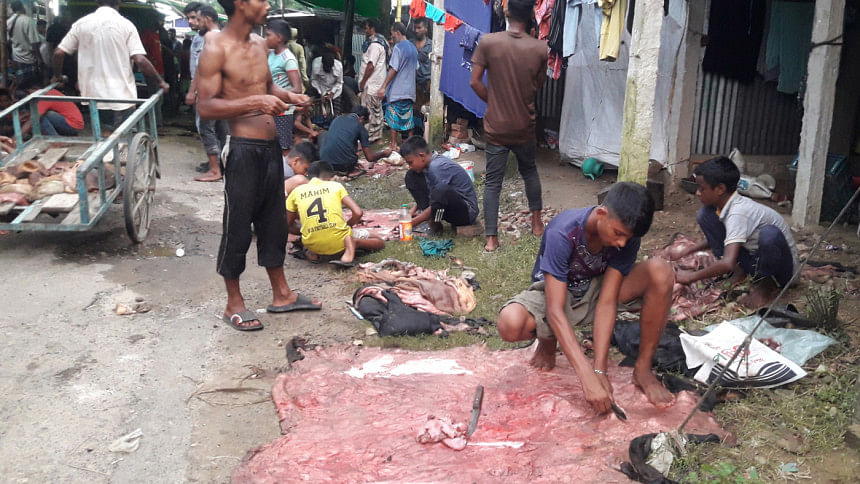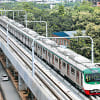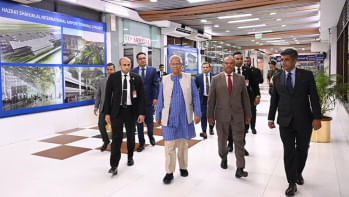Meat peeled from cattle hide brings Eid joy to the poor in Moulvibazar

In the bustling Balikandi market of Moulvibazar Sadar upazila, one can see a unique scene unfold every year during Eid-ul-Azha. Amidst the hustle and bustle of buyers and sellers, Abdur Rahman, 34, a resident of Balikandi village, finds himself in a rather unexpected role -- that of a beef seller.
"I can never afford to buy beef during the rest of the year. It's simply too expensive," says Rahman, who has been involved in the business of removing meat from the skins of slaughtered cattle for the past 20-25 years.
"But during Eid-ul-Azha, I feel rich," he adds, explaining that he makes a profit by peeling the meat from animal skins and selling the meat at prices ranging from Tk 50 to 200 per kilogram.
He also gets between Tk 15 and 30 from the hide owner, depending on the size. As the night progresses, the number of buyers steadily increases. "Most of the buyers are from low-income families," Rahman says.
Saddam Mia, the helper of a driver, is a custoner at the market. "I come to this market every year on Eid night. The price is incredibly low compared to any other time of the year," he says. Although the market was disrupted during the pandemic, Saddam resumed his visits last year, eager to buy beef at prices he could afford.
Sajidur Rahman, another regular at the market from Joypasha Colony in Kulaura Upazila. He says the market provides an unexpected relief for low-income families. "I couldn't work for the past few days due to the rain, but Allah has blessed me today," he says after purchasing six kilograms of beef peeled from rawhide for just Tk 500. "Even my parents and grandparents never bought beef at such a price," he adds with a smile.
Mabrul Mia, 45, a security guard, is also satisfied. "It is a rare moment of joy to be able to buy beef at such affordable prices. After purchasing from this market, my Eid celebrations are much better."
The one-day meat market is set up near the Monu Bridge in Chandnighat, a suburb of Moulvibazar. Many people sit on the sidewalks of the Monu Bridge and the road with meat bundles and bags. Poor men and women from different villages buy the cheap meat.
Some also come to sell "extra" meat they have collected from the rich.
Md Shawkat, president of Balikandi Leather Traders' Association, said the market has been a hub for leather trade since his grandfather's time.Every year, between 1,500 and 2,000 workers gather here to peel meat from the hides, which are then sold in the market. "Once the leather is cleaned, we pay a fee based on the skin's size. This business has been passed down through generations," says Shawkat.

 For all latest news, follow The Daily Star's Google News channel.
For all latest news, follow The Daily Star's Google News channel. 








Comments